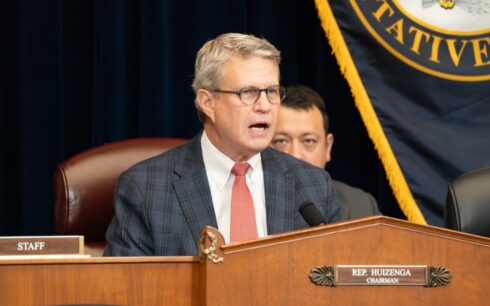NEW DELHI — India’s External Affairs Minister, S. Jaishankar, has accused Pakistan of playing a “double game” in Afghanistan by backing both the Taliban and opposing forces, a strategy he said ultimately backfired and contributed to the country’s current instability.
Speaking at Charotar University of Science and Technology in Gujarat on Tuesday, April 15, Jaishankar said Pakistan became entangled in the very network of terrorism it had helped to create. “Pakistan was playing a double game. It was with both the Taliban and also with the other side,” he said. “But when the Americans left, the double game could not be sustained.”
He described Pakistan as the architect of the region’s “terrorism industry,” and argued that Islamabad’s attempts to benefit from multiple alliances ultimately led to domestic insecurity. “Whatever benefits they were getting out of the double game, that also went down,” Jaishankar said. “Moreover, the very terrorism industry they had promoted came back to bite them.”
Jaishankar pointed to the 2008 Mumbai attacks — in which more than 160 people were killed — as a pivotal moment that permanently soured relations between India and Pakistan. “Indians collectively felt that such behavior from a neighboring country could no longer be tolerated,” he said. “That feeling was very strong in Indian society, though it may not have been fully understood by the government at the time.”
The foreign minister contrasted the political and economic trajectories of India and Pakistan in the years since. “India has changed,” he said. “I wish I could say Pakistan has changed too. Unfortunately, they are continuing their bad habits.”
Jaishankar also referred to a shift in Indian foreign policy after 2014, when the Modi-led government took power. “Pakistan was given a firm message that there would be consequences if acts of terrorism were committed,” he said, adding that India has since grown in global stature while Pakistan “continued the old playbook.”
In a pointed remark, he concluded: “India has surged ahead. We should not waste our precious time on Pakistan.”
Jaishankar’s comments came just days after Tahawwur Hussain Rana, a key plotter of the 2008 Mumbai terror attacks, was extradited to India from the United States. The extradition marked a significant moment in U.S.-India counterterrorism cooperation.
Following the extradition, U.S. Secretary of State Marco Rubio said, “We extradited Tahawwur Hussain Rana to India to face charges for his role in planning the horrific 2008 Mumbai terrorist attacks. Together with India, we’ve long sought justice for the 166 people, including six Americans, who lost their lives in those attacks.”
In response, Jaishankar expressed appreciation for Washington’s support. “We value the counterterrorism cooperation between our two countries,” he said. “This is a big step in ensuring justice for the victims of the 26/11 attacks.”





